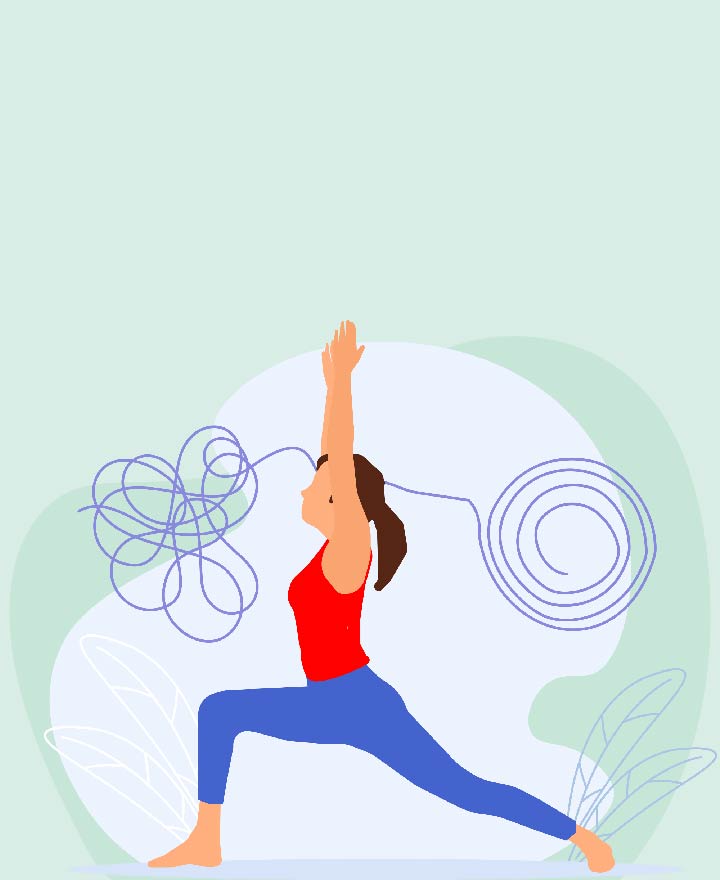

How Can Meditation Help You with Depression?
Depression is a mental health condition that can be triggered due to a variety of reasons, varying from person to person. While, meditation might not completely cure your depression, but it can certainly be a big help. Read on to know more.
How Can Meditation Help Fight Depression?
Depression symptoms can linger, even with treatment. While meditation won’t cure your depression, but adding it to your treatment will surely help you manage your depressive episodes better. Here’s how.
- It helps you change your response to negative thinking by teaching you to pay attention to thoughts and feelings without passing judgment or criticizing yourself.
- It helps you learn how to manage depression more effectively by making it easier to pay attention to your emotions as they come up.
- Mindfulness-based cognitive therapy, an approach to psychotherapy that incorporates mindfulness meditation practices, can help lower your chances of depression relapse.
Meditating for Depression
Living with depression reduces your threshold for trying new experiences. It also makes you want to never get better. Under such circumstances, meditation can feel like a huge and fairly difficult task.
These simple steps can help you get started:
1. Get Comfortable by either sitting down, standing up, or lying down. Closing your eye can also help.
2. Take slow, deep breaths through your nose. For several seconds, just focus on breathing.
3. Eventually, begin shifting your attention from your breath to the various parts of your body to perform what’s known as a body scan.
4. When you’ve finished scanning your body, return your focus to your breathing for as long as you need.
Tips And Tricks for Meditation
While there’s really no right or wrong way to meditate, below are some tips that can help.
● Make a routine and practice meditation at the same time every day.
● Use a mantra or a positive sentence to keep yourself grounded and to stop intrusive thoughts. This can also help you increase your focus.
● Be creative while practicing mediation. This can be done by mediating either while walking or getting some more intense activity.
● Meditation takes effort and time. You might notice some small improvements right away, but you probably won’t feel a huge difference immediately.
When To Get Help?
Meditation may not help much during a major depressive episode. If you have severe symptoms, you’re better off talking to a mental health professional or your healthcare provider.
Many therapists offer mindfulness-based cognitive therapy, so you can still incorporate the benefits of meditation into your care.
Conclusion
When you incorporate meditation practices into your daily life, you may find it easier to challenge unwanted thoughts you experience and keep yourself from getting locked into the negative thought spirals that often make depression worse. Meditation may be more beneficial when used alongside therapy, so don’t hesitate to reach out to a therapist who can offer more guidance on coping skills and other treatments.
Source: Healthline, Webmd, Psychcentral
Disclaimer: This blog provides general information and discussions about health and related subjects. The information and other content provided in this blog, website or in any linked materials are not intended and should not be considered, or used as a substitute for, medical advice, diagnosis or treatment. Kindly contact your Doctor before starting a new medicine or health regime.
Related Articles
8 Depression Facts You May Not Know About
The Side Effects Of Depression On Relationships
Avoid Saying These Things To Someone Suffering From Depression
Explaining Depression Sensitively–Here’s How
How Depression Affects Your Body And Overall Wellbeing
Published on October 13, 2022

















 Health Insurance
Health Insurance  Travel Insurance
Travel Insurance  Car Insurance
Car Insurance  Cyber Insurance
Cyber Insurance  Critical Illness Insurance
Critical Illness Insurance
 Pet Insurance
Pet Insurance
 Bike/Two Wheeler Insurance
Bike/Two Wheeler Insurance  Home Insurance
Home Insurance  Third Party Vehicle Ins.
Third Party Vehicle Ins.  Tractor Insurance
Tractor Insurance  Goods Carrying Vehicle Ins.
Goods Carrying Vehicle Ins.  Passenger Carrying Vehicle Ins.
Passenger Carrying Vehicle Ins.  Compulsory Personal Accident Insurance
Compulsory Personal Accident Insurance  Travel Insurance
Travel Insurance  Rural
Rural